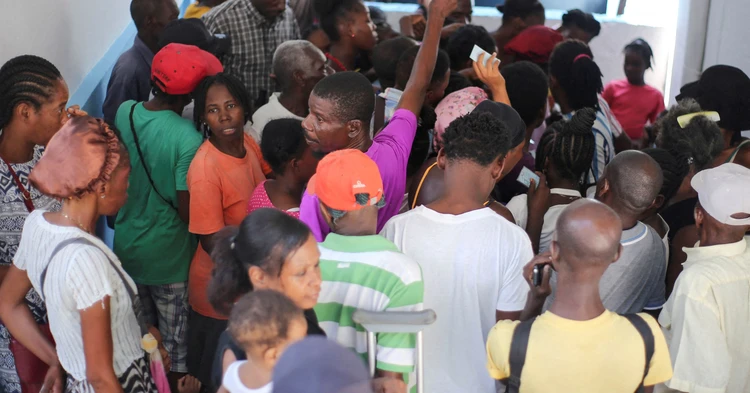
People gather to receive food at the temporary shelter in College des Antilles as the country faces emergency food insecurity while immersed in a social and political crisis, in Port-au-Prince, Haiti October 4, 2024. Photo: Reuters
Currently, 5.7 million Haitians - over half the population - are facing high levels of food insecurity, with 1.9 million at the emergency level, experiencing acute food shortages and high malnutrition, the IPC report said.
The IPC, a UN-backed index measuring hunger and malnutrition in global hotspots, projects 5.91 million will experience food insecurity by mid-2026, including nearly 2 million at the emergency level.
Martine Villeneuve, Haiti director at non-profit organization Action Against Hunger, described the absence of the IPC's most extreme phase of famine as "encouraging," and noted that 200,000 people were no longer at the emergency level of hunger.
But she warned that progress was fragile.
"The current response is, by nature, short-term and cannot be sustained without stronger, long-term investment to tackle the root causes of food insecurity," Villeneuve said.
Haiti remains among the five worst food-security crises globally, with more than half of the population relying on assistance, Villeneuve added.
Haiti's deepening food crisis stems from six consecutive years of economic recession and expanding gang violence, which have displaced families, disrupted livelihoods, and eroded agricultural output, the report said.
In areas controlled by armed groups, farmers face extortion, and small businesses are forced to shut down.



Max: 1500 characters
There are no comments yet. Be the first to comment.